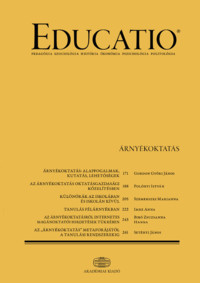Pandémiás oktatás
Pandemic Education
Author(s): István PolónyiSubject(s): Education
Published by: Akadémiai Kiadó
Keywords: centralization of the education system; polarization of public education institutions; elitization of higher education; narrowing of distance education
Summary/Abstract: The aim of the study is to present the transformation of the Hungarian public education and higher education system over the past ten years, and its unfavorable consequences for the effectiveness of pandemic education. The paper first presents the changes that have taken place in public education, of which the nationalization of institutions, the polarization of non-declining institutions, and the withdrawal of resources have resulted in serious problems during the period of pandemic education. Withdrawals have led to the obsolescence of school ICT tools, polarization means that at least one-fifth of pupils do not have access to distance education, and centralization has left both schools and teachers to themselves. The most important elements of higher education policy changes are centralization, which reduces institutional autonomy, the elitization s the withdrawal of funds. The effectiveness of pandemic education has been significantly affected by these measures. Following the elitization, distance education in the Hungarian higher education system is extremely narrow, so neither the equipment of the institutions nor the lecturers were prepared for mass distance education. Lack of resources prevented a rapid response, and a lack of autonomy resulted in dependence on the center instead of independent initiatives. The study concludes that the impact of pandemic education on Hungarian society is likely to have two serious long-term consequences: partly reducing social cohesion, and partly increasing the backwardness of Hungarian human resources, which are already becoming more and more disadvantaged.
Journal: Educatio
- Issue Year: 30/2021
- Issue No: 1
- Page Range: 3-21
- Page Count: 19
- Language: Hungarian

